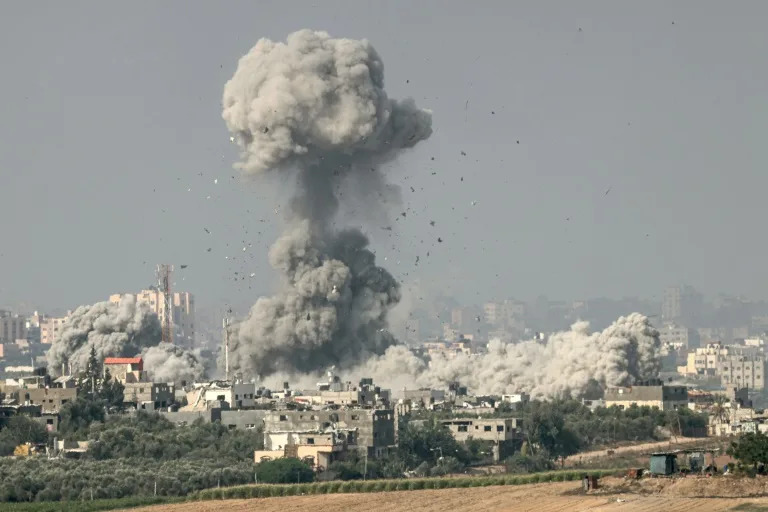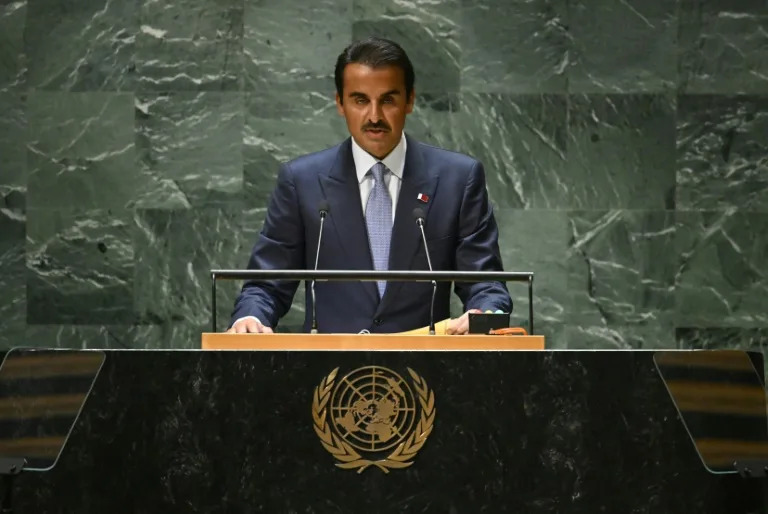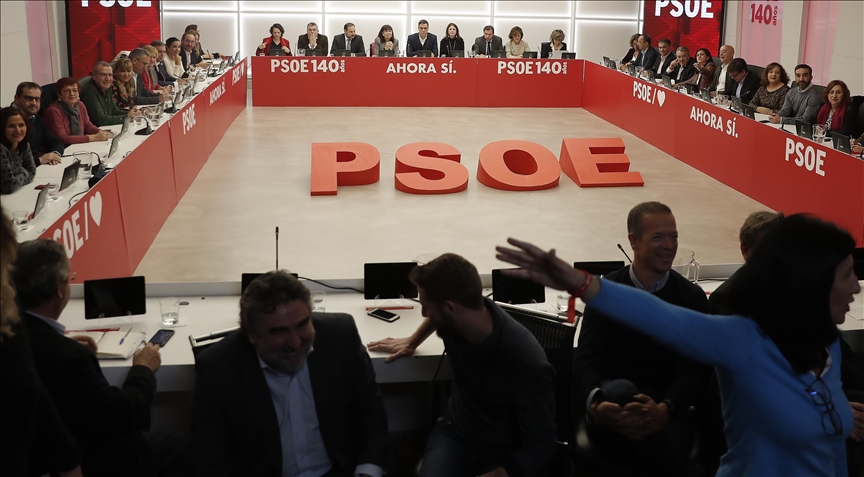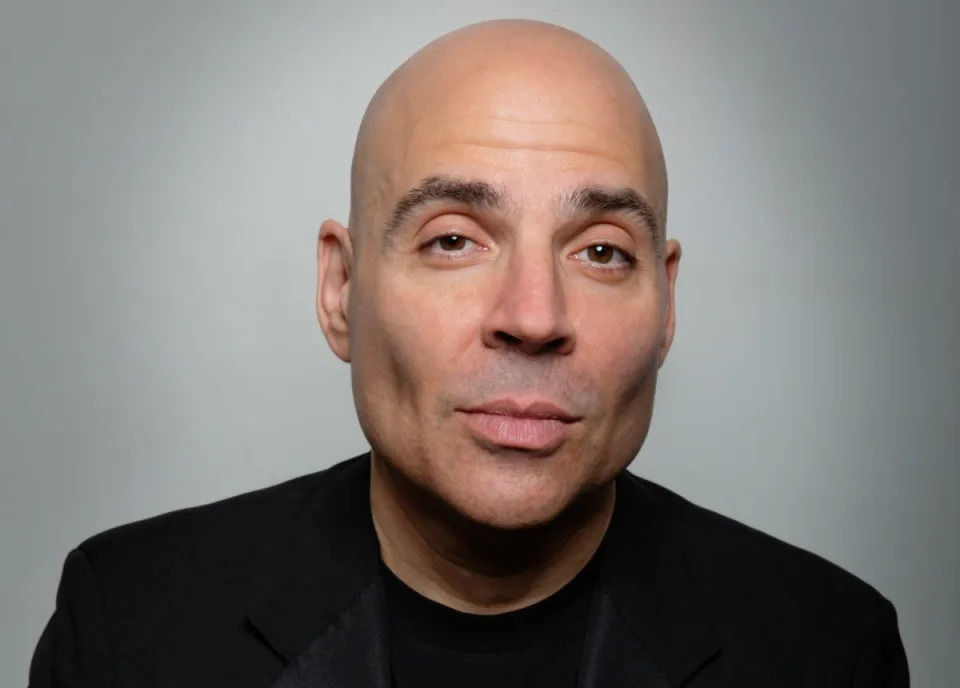Yocheved Lifshitz, 85, who was released by Hamas fighters, said she was beaten when abducted but later treated 'gently'

Yocheved Lifshitz (left) with fellow captive Nurit Yitzhak during their release (Screenshot)
By MEE staff
Published date: 24 October 2023
Israeli officials are reportedly unhappy with an interview given by an elderly former captive of Hamas in Gaza because she had not been well prepared for the statement.
In a press meeting on Tuesday, 85-year-old Yocheved Lifshitz, an Israeli captive released from Gaza on Monday evening, said she was beaten on 7 October, the day Palestinian fighters stormed southern Israel, but later treated "gently".
Sources told Israel's state-owned Kan News that the interview was a "mistake", adding that a "preliminary meeting" may not have been held with Lifshitz prior to her press statement and that if one had been held, not "all questions" to do with the preparation were asked.
Lifshitz is one of four Israelis who have been released after Hamas-led Palestinian fighters stormed Israeli communities near the Gaza Strip in an attack that killed around 1,400 Israelis, mostly civilians. Israel believes 220 captives are being held in Gaza.
The former Israeli hostage was one of the oldest held by Hamas in Gaza, and spent more than two weeks in captivity.
She was released alongside another captive, 79-year-old Nurit Yitzhak.
Lifshitz told reporters: "I've been through hell, I never thought that I would reach such a state. They [Palestinian fighters] went berserk in our kibbutz [and] put me on a motorcycle."
She went on to describe how children and the elderly were among those taken, calling the scenes "extremely painful".
Lifshitz added that she was hit by a stick en route to Gaza and made to walk several kilometres after reaching the area.
'Needs met'
According to the former hostage, a medic and later a doctor visited her while she was held by Hamas, to check on her condition. "They took care of every detail," she said.
Lifshitz said her captors "took care" of her needs. "They ensured that they eat the same food as we eat, white cheese and cucumbers," she added.
Retelling her mother's story, Lifshitz' daughter Sharone said: "When she first arrived, they [fighters] told them that they are Muslims and they won't hurt them."
When Lifshitz was asked why she shook hands with the Hamas fighter before her release, she replied: "They were gentle with us, our needs were supplied."
During the press statement, Lifshitz also condemned the Israeli army's lack of preparedness for the attack on 7 October, saying that "two billion" shekels had been spent on security systems that did not work.
She also attacked the government for its failures in the lead-up to the attack. "We were the government's scapegoat, we were abandoned. We went through hell," she said.
Family members had earlier told media outlets that the grandmother had previously worked to get medical aid to Palestinians in Gaza.
Oded Lifshitz, Yocheved's husband, is still missing and presumed to be held by Palestinian armed groups in Gaza, although his whereabouts or condition are not known.
Israel says that Hamas holds 22o of its citizens as prisoners, some of whom hold citizenship of different countries, but that number may in fact be higher, as dozens of people are still missing.
Hamas says 22 captives have been killed in Israel's bombardment of Gaza, which has killed at least 5,000 Palestinians, the vast majority of whom are civilians.
In an interview with Sky News broadcast on Tuesday, senior Hamas leader Khaled Meshaal said the group would release all of its hostages in exchange for an end to the bombardment of Gaza.
Sky News
Tue, 24 October 2023
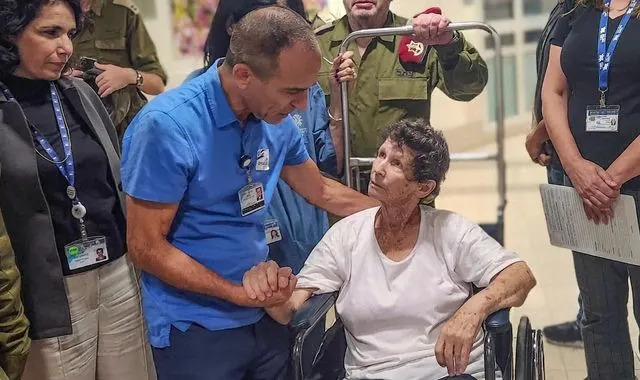
Hamas were "really prepared" for kidnapping Israeli citizens and holding them captive, a hostage freed by the militants had told the press in Tel Aviv.
Yocheved Lifshitz, 85, said "each person [hostage] had a guard watching him or her" after they were taken down into a network of tunnels under Gaza that looked like a "spiderweb".
She said Hamas's surprise incursion on 7 October, where she was kidnapped along with more than 200 others, happened after Israel's Defence Forces (IDF) failed to take warnings from the militant group seriously.
Seated in a wheelchair, a frail-looking Mrs Lifshitz said Hamas treated her and the other hostages "gently" and had secret provisions for looking after them.
She said a doctor visited her and made sure she and other hostages received the same sort of medicines they had been taking in Israel.
Mrs Lifshitz added: "They seemed really prepared for it. They had concealed it for a long time, and they took care of all the needs that people need, [such as] shampoo and conditioner."
"They gave us pitta bread, hard cheese, some low-fat cream cheese and cucumber and that was our food for the entire day," she added.
'It was painful'
Mrs Lifshitz, who was taken from her home in Nir Oz, near the Gaza border, told how she was taken away by motorbike with her head on one side of the vehicle and her legs on the other.
She added that she was "taken through ploughed fields" and hit by Hamas fighters with sticks during the kidnapping.
"They didn't break my ribs but it was painful and I had difficulty breathing," Mrs Lifshitz said.
She added that she had to walk a "few kilometres" with one militant in front of her and another behind until she reached the tunnels.
Sharone Lifshitz, who lives in London, flew out to Tel Aviv and was by her mother's side, translating parts of her description from Hebrew into English as she spoke to the press this morning.
Sharone spoke about the humane treatment her mother says she received during her captivity after the violent kidnapping.
The freed hostage's daughter told journalists: "My mum is saying they [Hamas] were very friendly towards them. They took care of them.
"They were given medicine. They were treated. One of the men with them was badly injured from a motorbike accident on the way.
"One of the paramedics gave him medicine and antibiotics.
"The people were friendly and they kept the place very clean.
"My mum is saying they were very delicate and caring with them, and took care of all their needs."
She had earlier confirmed her mother was released on Monday evening.
Mrs Lifshitz later added the Israeli Defence Forces (IDF) did not take the warnings of a possible Hamas incursion seriously before it happened.
She said Hamas had burnt fields and launched heavy shelling before its militants crossed the Israel-Gaza border.
Mrs Lifshitz also said the costly security fence meant to keep militants out "didn't help at all".
Hamas said it released Mrs Lifshitz and Nurit Cooper, 79, on humanitarian and "poor health grounds" but their husbands are still being held prisoner.
The two women and their husbands - aged 83 and 84 - were snatched from their homes as Hamas began its massacre on 7 October.
Earlier this week, the group released images of masked gunmen giving the women food and drink and leading them to the handover point, where Red Cross workers met them.
Only four of those kidnapped during the Hamas attack have so far been freed - the other two being a US mother and daughter last week.
With many hostages still held prisoner, the US is understood to have asked Israel to delay its ground invasion so more can be freed.
The British Foreign Office welcomed the release of the women and vowed to "continue to work tirelessly" on securing the release of more.
A spokeswoman said: "Our thoughts remain with the families of loved ones still being held captive, as they endure unimaginable anguish and worry at this time.
"We will continue to work tirelessly with Qatar, Israel and others to ensure all hostages come home safely."
A senior Hamas leader earlier told Sky News all civilians among the hostages would be released if Israel reduced the intensity of bombing Gaza.
"We want to stop the random bombardments, the total destruction, the genocide so that the al Qassam soldiers can take them from their places and hand them to the Red Cross or whoever," said Khaled Meshaal.
"We need the right conditions to allow them to be released," he claimed.
More than 5,000 Palestinians have now been killed and 15,000 wounded in Israeli airstrikes, Gaza's health ministry says.
Israel is preparing for an expected ground invasion, with tanks and thousands of troops waiting for days for the order to attack - a move that's likely to significantly increase casualties on both sides.
Defence minister Yoav Gallant told troops on Monday "it will come" and to keep preparing.
He said the attack would be from land, air and sea but gave no timeframe.
Around 1,400 people have been killed in Israel since the 7 October Hamas incursion, according to Israeli sources.
Nataliya Vasilyeva
Tue, 24 October 2023
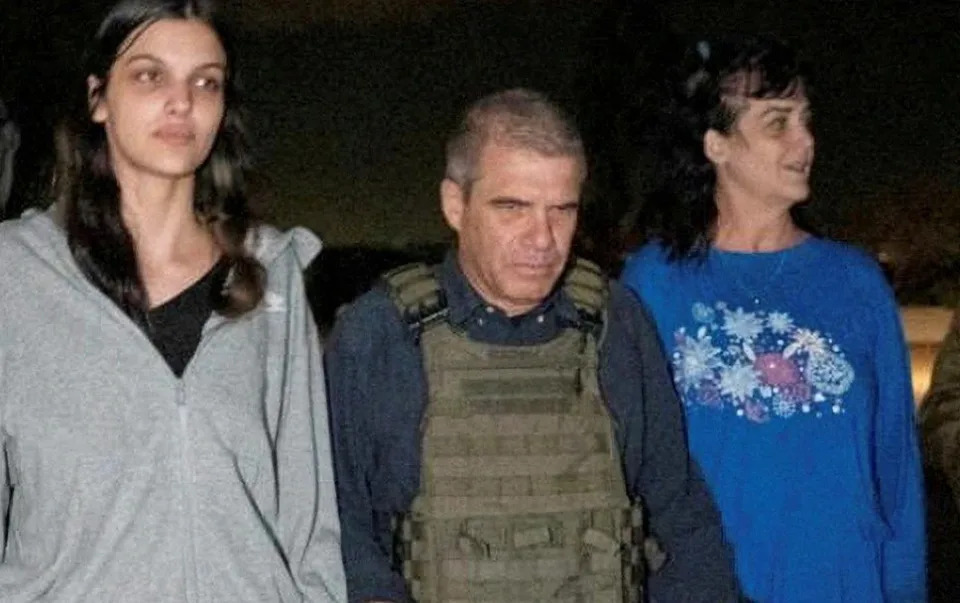
Released hostages Judith and Natalie Raanan were pictured at the Gaza border with Mr Hirsch walking between them - Government of Israel/Reuters
Benjamin Netanyahu is facing pressure to sack his newly appointed hostage envoy after angry protestations about him taking centre stage in the release of captives held by Hamas.
Critics filed a petition to the Israeli prime minister on Gal Hirsch, a retired brigadier general of the Israel Defense Forces (IDF), after his apparent attempt to make publicity out of the release of two US hostages on Friday.
Judith and Natalie Raanan, a mother and daughter, were pictured at the Gaza border on Friday evening, with IDF photographs showing Mr Hirsch walking between them.
He was wearing body armour, but the two women were not.
It comes as Mr Netanyahu’s popularity has fallen dramatically following the Hamas attacks. He had staked his reputation on his security credentials.
The appointment of Mr Hirsch raised eyebrows given his controversial role as former commander of the Galilee Brigades stationed near Israel’s border with Lebanon during the 2006 Second Lebanon War.
His promising career in the armed forces came to an abrupt halt when many blamed him for the disastrous battle of Bint Jbeil, in which two IDF soldiers were kidnapped and eight killed in the war’s fiercest fighting.
Soldiers were sent in to storm Bint Jbeil after the general bragged on TV about taking full control of the Lebanese town.
Seventeen days into the war with Hamas, Mr Netanyahu’s government faces rising anger from relatives of hostages for not doing enough to secure their release.
Appointment is ‘unacceptable’
Mr Hirsch, 59, is not known for any relevant experience in hostage negotiations or contacts in the region.
A prominent Israeli NGO advocating transparency and good governance on Monday filed a petition to Mr Netanyahu and the country’s attorney general, labelling Mr Hirsch’s appointment as “unacceptable”.
The Movement for Quality of Governance said: “Israeli citizens deserve to have a qualified coordinator rather than someone who got the role on a political basis.”
Earlier on Monday, an influential Israeli newspaper ran a scathing editorial titled “Go home, Gal Hirsch!”, accusing Mr Netanyahu of having “no serious intentions of working to free the hostages” and calling Mr Hirsch a “bad appointment”.
The article in the Left-leaning Haaretz newspaper said: “Even now, at Israel’s lowest moment, Netanyahu’s people are busy first and foremost with self-glorification, and to hell with the country.”
The Israeli government is still facing a dilemma whether to wait to negotiate a possible release of at least civilian hostages or go ahead with its promises of a ground invasion to reassert its position after Hamas’s cross-border raid was made possible by an embarrassing intelligence and military failure.
Gershon Baskin, who in 2011 negotiated with Hamas on the release of the IDF soldier Gilad Shalit in exchange for the release of 1,027 Palestinian inmates, told the Telegraph that time was running out for Israel.
“The window of opportunity is open as long as a ground operation hasn’t started,” said Mr Baskin, who serves as the Middle East director for the London-based advocacy group International Communities Organisation.
“Once it begins, it will make it much more difficult if not impossible to save the hostages.”
Mr Hirsch resigned from the Israeli armed forces a few months after the crisis in Lebanon in 2006 in response to public anger and frustration about the abductions and the failure at Bint Jbeil.
An inquiry found that his troops were poorly prepared for the fatal Hezbollah raid and abduction. Mr Hirsch at the time dismissed the inquiry as “agenda-driven”.
Mr Netanyahu’s office declined to comment.

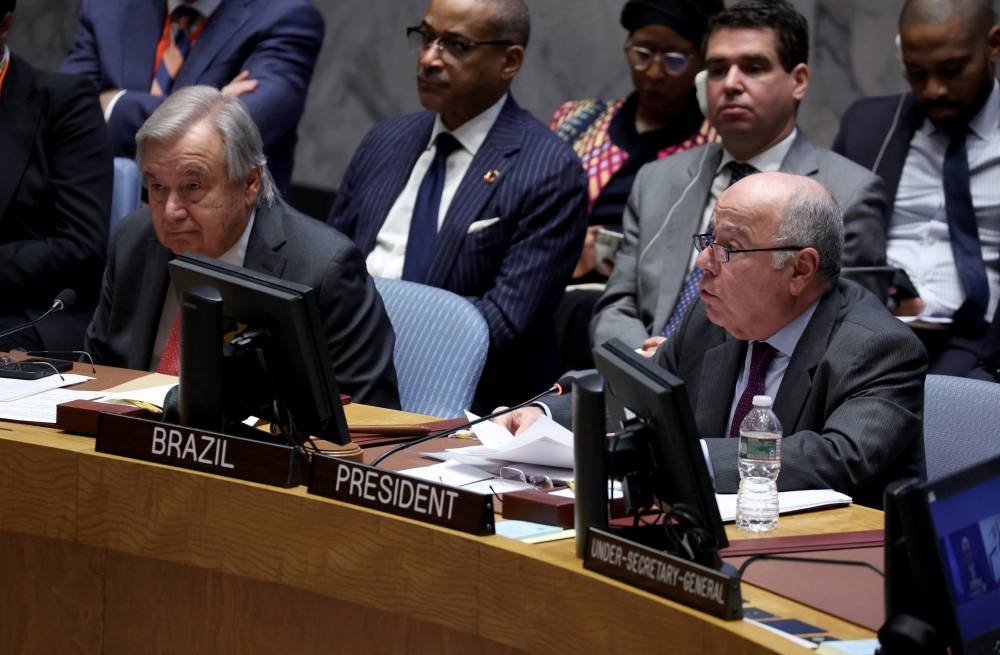

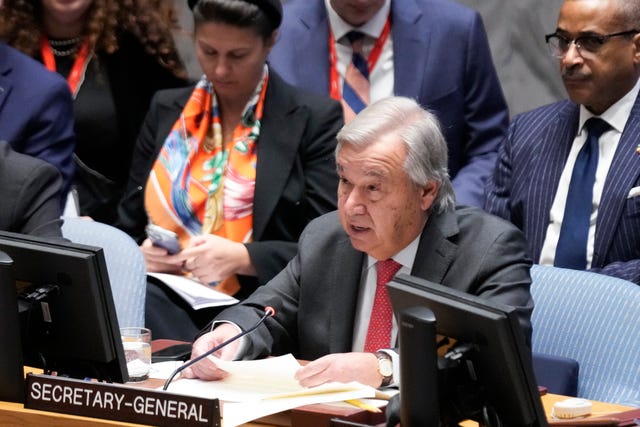
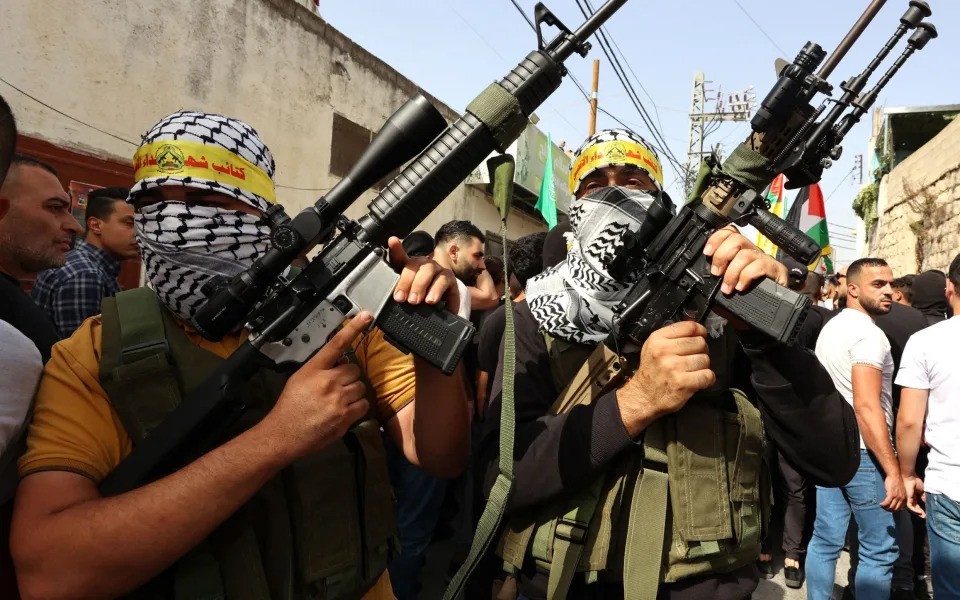
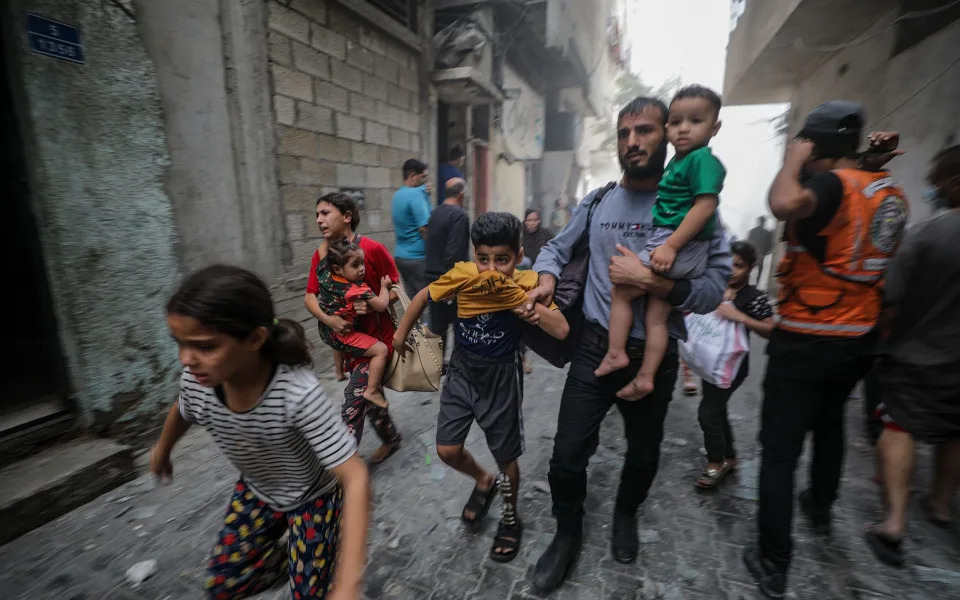
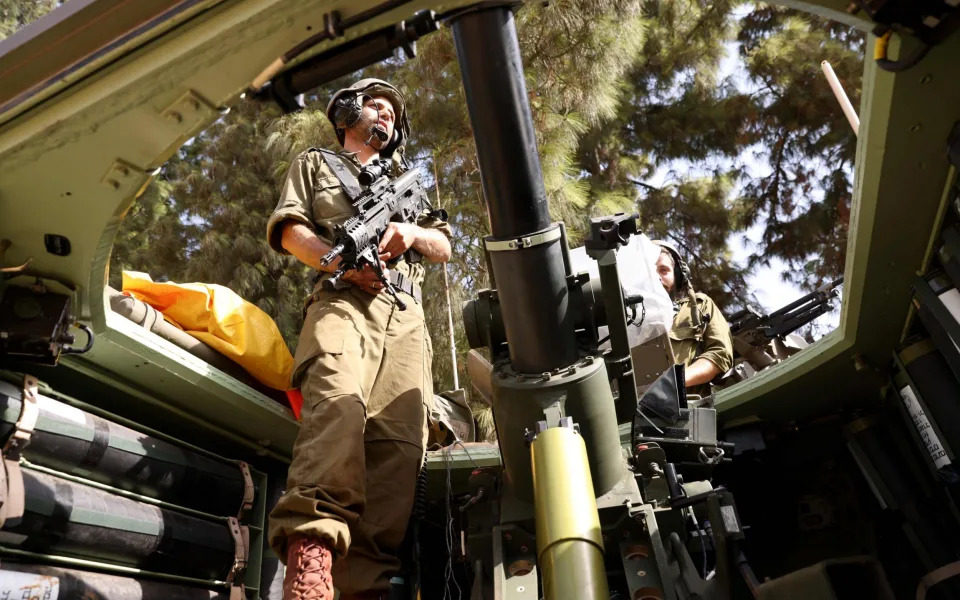
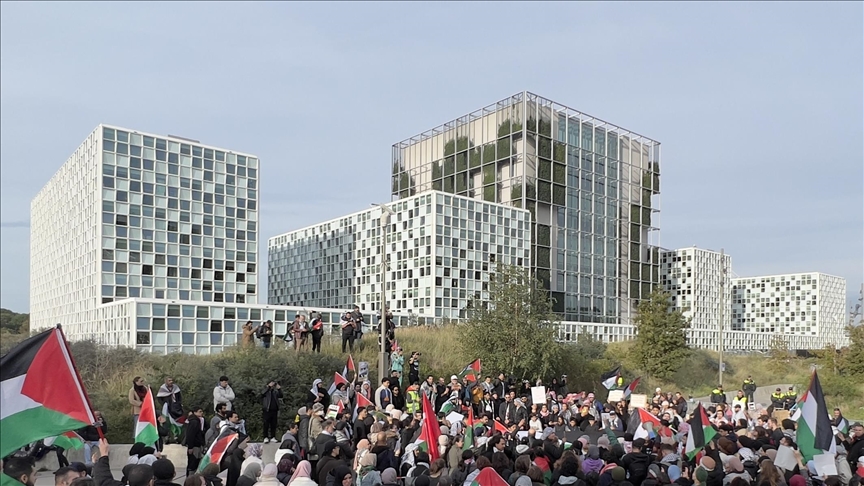
.jpg)
